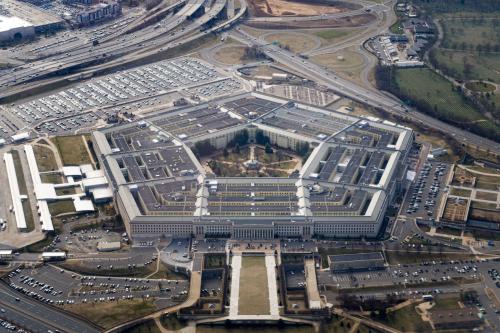

10:00 am EDT - 11:30 am EDT
Past Event
Twenty years after 9/11, nonstate armed actors remain powerful forces in world politics, and are increasingly tied to regional and geopolitical power competition. In various parts of the Middle East, they have become deeply entrenched not only in local political systems, but also in national government structures. Nor are they a recent phenomenon in the Middle East. As early as the 1960s, the United States and Jordan adopted coordinated responses to nonstate armed actors, such as various Palestinian movements, some of which engaged in spectacular terrorism and posed a significant threat to Jordan. Since then, various insurgent, terrorist, and militia groups have become a major feature of countries such as Iraq, Lebanon, Syria, and Libya.
On October 14, the Brookings Institution’s Initiative on Nonstate Armed Actors convened a panel exploring the evolution of nonstate armed actors in the Middle East over the past several decades, and of U.S. and international policy responses toward them. With a focus on Jordan, Iraq, Lebanon, and Libya, the panel explored among other issues changes in the balances of power between governments and nonstate armed actors, the incorporation of nonstate armed actors into state structures, the role of Iran, the adoption of new technology by nonstate armed actors, and U.S. policy approaches, constraints, and innovations. After their remarks, panelists took questions from the audience.
Viewers can submit questions via email to [email protected] or Twitter using #NonstateArmedActors.
Moderator

Panelist



Michael E. O’Hanlon
September 12, 2024

Ranj Alaaldin
February 2, 2024

Jeffrey Feltman, Kevin Huggard
November 17, 2023